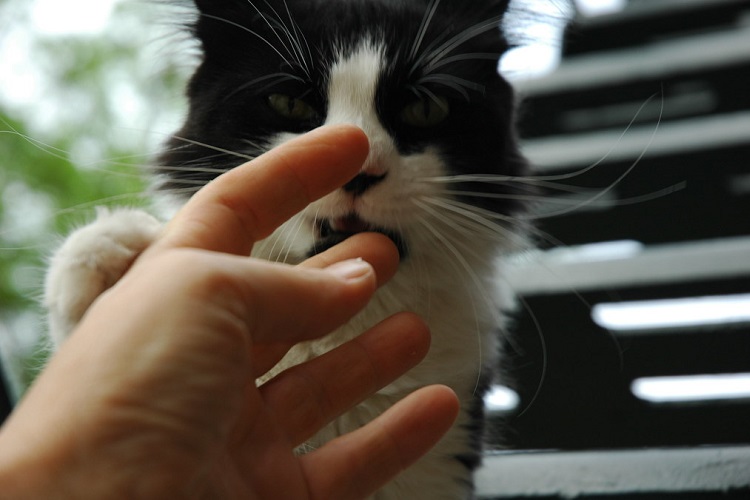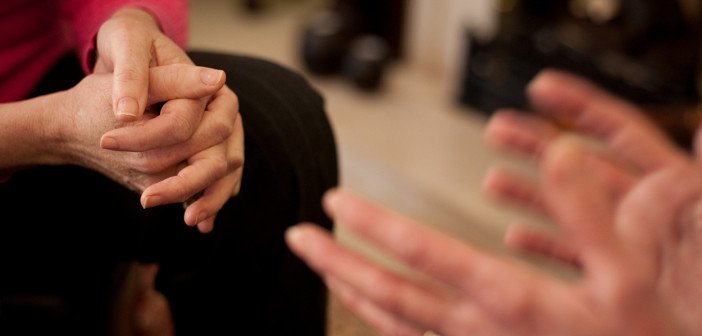Everything to Know About Body-Focused Repetitive Behaviour
Do you love to check your reflection when walking past a storefront? Do you prep and primp in front of the mirror each time you visit the restroom? Perhaps you’re one of many who over-plucked your eyebrows or picked at pimples until they bled.
If so, you may actually have what’s called a body-focused repetitive behaviour issue. What is this disorder, and how can you find relief?
What Causes Body-Focused Repetitive Behaviours (BFRBs)?
A body-focused repetitive behaviour (BFRB) shares commonalities with obsessive-compulsive disorder. However, the sufferer doesn’t normally consciously realise they’re engaging in harmful actions. For example, say you begin biting loose skin after your lips get chapped. Yet after they heal, you unconsciously continue.
Research on identical twins indicates repetitive behaviours might link to your genetic code. Some people might be predisposed to hair pulling or skin picking. If others in your family engage in BFRBs, you’re more likely to follow suit.
External factors also influence the development of repetitive behaviours. You might start biting your nails during a period of extreme stress. Later, when life calms down, you persist in an ingrained habit. If you face consequences due to your new habit, you may feel embarrassed and inclined to hide it.

What Are Some Common BRFBs?
Nearly any repetitive behavior you do with your body can qualify as a BRFB. However, some habits are more common than others.
Onychophagia
Do you avoid manicures out of embarrassment? While you might save a fortune at the salon, biting your nails can make you sick. Think about the surfaces you touch every day, like your keyboard, door handles and shoelaces. All of those germs travel from your fingertips to your mouth.
Onychophagia is one of the most common BRFBs, with 20 to 30% of the population occasionally biting down. The disorder can make you gnaw your fingertips until they bleed, which makes tasks like typing painful.
Bruxism
Bruxism is a fancy way of saying you grind your teeth. You can do this habit in your sleep without even knowing it. If you do, you might suffer dental issues or bite your cheeks. Grinding can cause headaches and teeth cracks, both of which are painful.
If you clench your jaw, try massaging the muscles. Stress also causes bruxism. When you carry tension, it can manifest in tooth grinding.

Dermatillomania
Watching Dr. Pimple Popper can be disgustingly intoxicating. However, if you can’t stop picking at zits and other imperfections, you may have dermatillomania, also called excoriation disorder. In its severest form, you’ll pick until your skin bleeds. Even pimple popping can lead to permanent scarring.
When you start eating bits of your skin, the disorder further develops into dermatophagia. It can start with something as innocent as biting at a hangnail or torn cuticle.
Trichotillomania
Do you yank out your hair when you’re stressed? Maybe you leave your head alone, but pull on your eyelashes or arm hair? If so, you may have trichotillomania.
This disorder can progress to the point where you eat hair, called trichophagia. This disorder is hazardous, as hair can cause blockages in the intestines and lead to death.
How Are BRFBs Treated?
Like other mental health woes, therapists treat BRFBs through a combination of means. Care professionals use talk therapy and medications. They also connect patients with support groups to help them feel less alone.
One medication proven successful in treating trichotillomania is clomipramine. This antidepressant works on both your serotonin and dopamine receptors to provide relief. However, in high doses, it can cause seizures. Doctors recommend starting with the lowest dose and gradually building up. Physicians also use lithium and selective serotonin reuptake inhibitors (SSRIs) to treat BFRBs.

Talk therapy can work for treating BFRBs. One type of treatment is habit reversal training (HRT). This treatment centers around bringing awareness to repetitive behaviors to stop them. Doctors also use cognitive-behavioral therapy (CBT) and dialectical behavioral therapy in treatment.
It can take time to find the right combination of therapy and medication. Be patient with yourself and celebrate successes. If you manage to go a week without biting your nails, treat yourself to a manicure. Rewarding yourself for good behavior is better than beating yourself up for a setback.
Breaking Body-Focused Habits
What if you don’t have health insurance and can’t afford treatment on your own? Don’t despair. While you’ll need to work hard to overcome BFRBs, you can regain control. Give the following techniques a try:
Adopt a hobby: Do you want to learn how to knit? Now is the time to pick up your needles. When your hands are at work, you can’t bite your nails or skin. A habit requiring manual dexterity also prevents you from pulling hair. As a bonus, what you create makes beautiful holiday gifts.
Exercise: Working up a sweat offers a host of benefits. It helps you to control your weight and lowers the risk of various diseases. It also distracts you from harmful habits. For best results, choose a workout that keeps both your mind and body busy. You can pick your hair while walking on a treadmill. However, you can’t focus on BFRBs when following a Zumba instructor.

Journal Writing: Writing in a journal keeps your hands busy. It also allows you to process your feelings. If you know you’re engaging in a BFRB, jot down what you’re thinking and feeling. Maybe a trigger was a negative performance review from your boss. Perhaps you’re overwhelmed by your to-do list.
What Not to Say to Someone with a Disorder
If you love someone with a repetitive disorder, exercise empathy. They likely feel embarrassed by their behaviour, especially if it drastically alters their appearance. For example, some people with trichotillomania pull out so much hair they choose to wear wigs.
Instead of scolding your loved one, ask what you can do to support them. If a friend says she’s struggling to stop biting her nails, she may ask if you if noticed the behavior. Work out a code word that raises her awareness.
Ask what therapies they’ve tried. Some people may not know professional help is available. You can gently encourage them to seek treatment.
Many areas have support groups for individuals with BFRBs. If you’re close with someone trying to overcome such behaviors, offer to drive them to their first meeting. If you engage in BFRBs, you may feel embarrassed and frustrated. With treatment and patience, however, you can regain control of your life.
